Memories from the Pale of Settlement: All About Mother
Minna Rozen ©
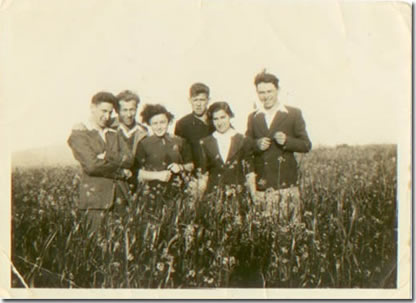 |
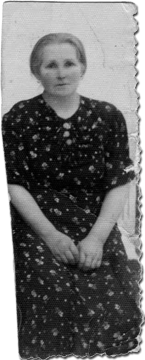 |
Mother Elisheva (nee Vorona) and father Barukh Lender (on the right side of the picture) in the fields of Afula 1935 |
Grandmother Mindle Vorona from the Doublstein Family 1886-1942 |
Mother—unpredictable, remote, a mournful expression on her face. Hiding a secret she refuses to share with anyone. Always afraid that something bad is going to happen, something unexpected that she is powerless to prevent. 'If you don’t run around outside, bad things won't happen to you,' she'd declare morning, noon and night. 'Never go outside with wet hair.' 'Never go out without a sweater before the first of May—and no white shoes before then either.' And of course: 'Don't drink water after eating watermelon' and 'Class trips are an invitation to disaster.' The same held true for youth-group activities and a hike to the top of Givat Ha-Moreh. 'Don’t sing too loud.' 'If you sing in the morning, you’ll cry at night.' Disaster lurks in every corner and must be avoided at all costs. But we can outrun it, Mother knows, if we just act cautious and level-headed.
On rare occasions, she was gay and carefree. Sometimes Father could even get her to laugh. Babies always made her smile—until she remembered that they too were in danger and it was her responsibility to save them. This is simply how it was.
One Shabbat afternoon when I was six, we were lying together on the living room couch that opened up into a bed. I don’t remember where Father and my brother Menachem were at the time. In any case, she was crying. I asked her why, and she answered that everyone had died and only she was left and she didn’t know why and what a pity it was that she hadn’t died too. I was hurt to the bottom of my six-year-old heart. But you have me! I protested. She made no response. Yet somehow, I find it hard to believe that she was cold and indifferent by nature; after all, she had managed to learn from someone that mothers do guard their young. And yes, she tried to be the perfect mother, in the sense that she shielded us from any physical danger that she could prevent. But her spirit was so scarred that she was incapable of offering warmth, love, kindness. She had to forget the shtetl she had come from. The parents she had betrayed. The brother she had abandoned to his fate. The life she had renounced. As far as she was concerned, it was her betrayal that had brought them to their tragic end. So desperate were her efforts to erase them from her memory that they left her with no energy to give anything to anyone.
It was obvious she knew that her family was of a lower social status than Father’s. In Europe, they never would have married in the first place. But even here in Israel, everyone knew that she had "married well"; the trouble is that this particular well had long since run dry. Father was not a person who knew how to accumulate wealth or hold onto it. He thought that money was important; but since he had never known true need, and had been raised to trust that his intellectual abilities (which were the natural result of his social standing and education, or so he'd been taught to believe) would always make it possible for him to earn a living, he didn't consider it important enough to be frugal—or at least not to the degree that Mother felt was necessary to safeguard our future. He wasn’t willing to throw money away, but he was prepared to spend it on nice things.
for the full story (PDF)
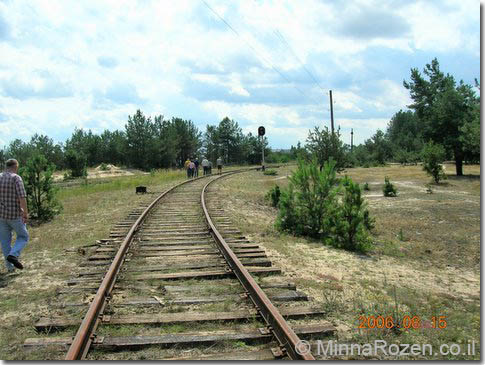 |
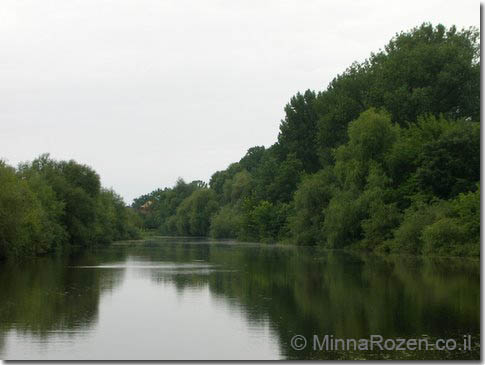 |
On the railroad from Sarny to the killing pits in Sarny Forest, photo by Minna Rozen 15 August 2006 |
The Horin river in Dombrovitze, photo by Minna Rozen 15 August 2006 |
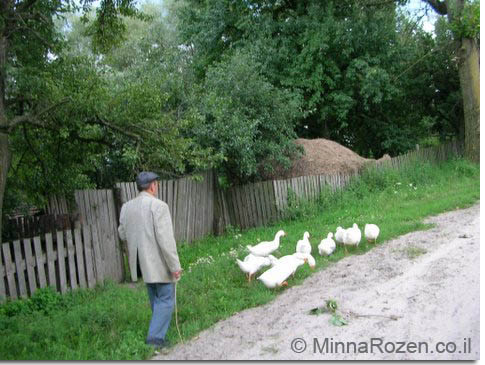 |
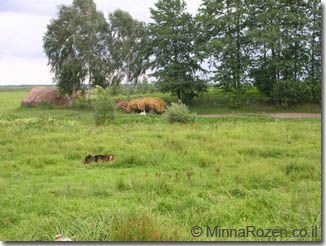 |
A Street in Bereznitze, photo by Minna Rozen 15 August 2006 |
Entering the village of Bereste, photo by Minna Rozen 15 August 2006 |
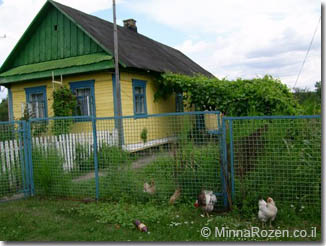 |
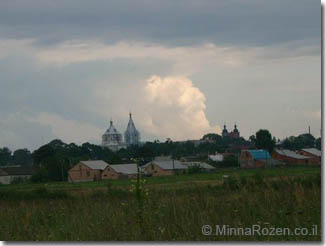 |
A house in Bereznitze, photo by Minna Rozen 15 August 2006 |
A view of Dombrovitze as seen from the "New" Jewish Cemetery, photo by Minna Rozen 15 August 2006 |
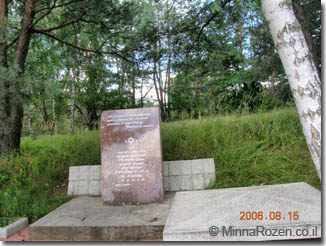 |
|
The memorial on one of the mass graves in Sarny Forest, photo by Minna Rozen 15 August 2006 |
|
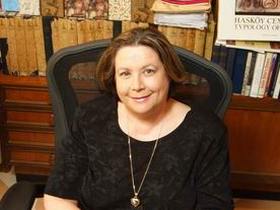 |
||
|
||
|
||
|
||

Some women are born refugees: Remember your Eritrean sistersPublished June 23, 2011The international community marks World Refugee Day this week, which refugees and human rights organizations in Israel will officially celebrate on Friday. But while the world commemorates the 1951 Refugee Convention, impossible suffering continues to be the fate of countless women. Professor Minna Rozen reminds us of what we have to be thankful for. |
||
השפע ניצח את הרוח
ישנן נשים שנולדות פליטות
המצאת המזרחיות
מנהיגי ש"ס המציאו לציבור שלהם היסטוריה כוזבת. מתברר שהעבר של רוב המזרחים איננו ספרדי. הם אכן חיו עם הערבים ויודעים מה הם מסוגלים לעשות, אבל אלה בעיקר דברים טובים דווקא. והסולידריות הקהילתית שלהם מצוצה מהאצבע. כך טוענת ההיסטוריונית פרופסור מינה רוזן, מתעדת הקהילות היהודיות באימפריה העותומנית. איך ש"ס שיכנזה את המזרחיים
ייתכן שיש לנו עוד תקווה,נכתב ב 21.05.2007, ונכון יותר מתמיד גם היום 07.08.2011
הד-נ-א של המחאה היהודית
העולם שייך לרעבים

